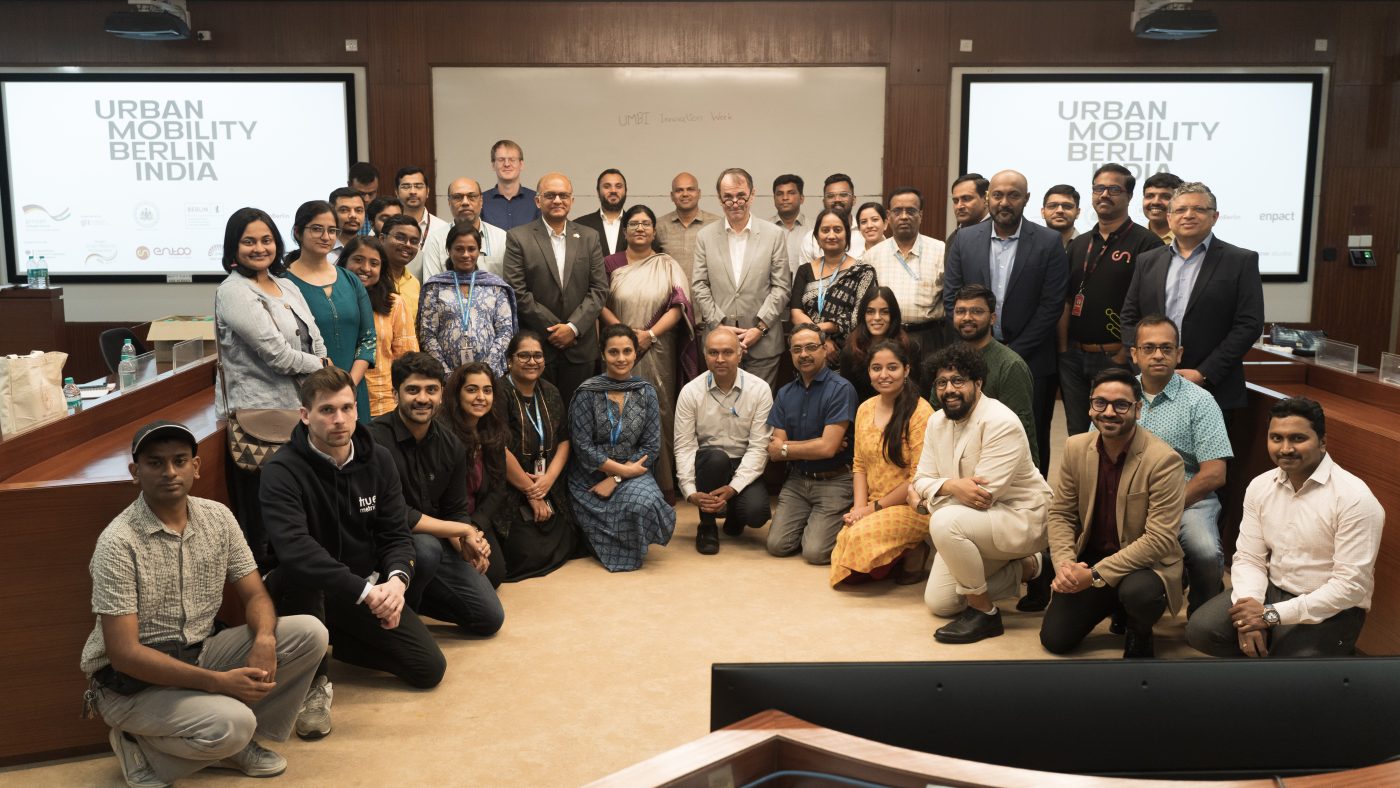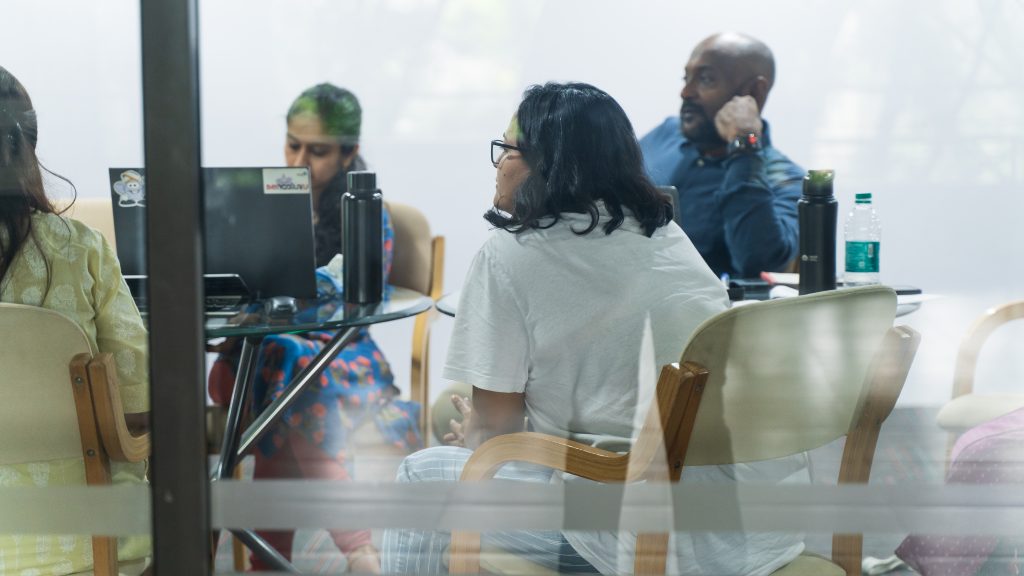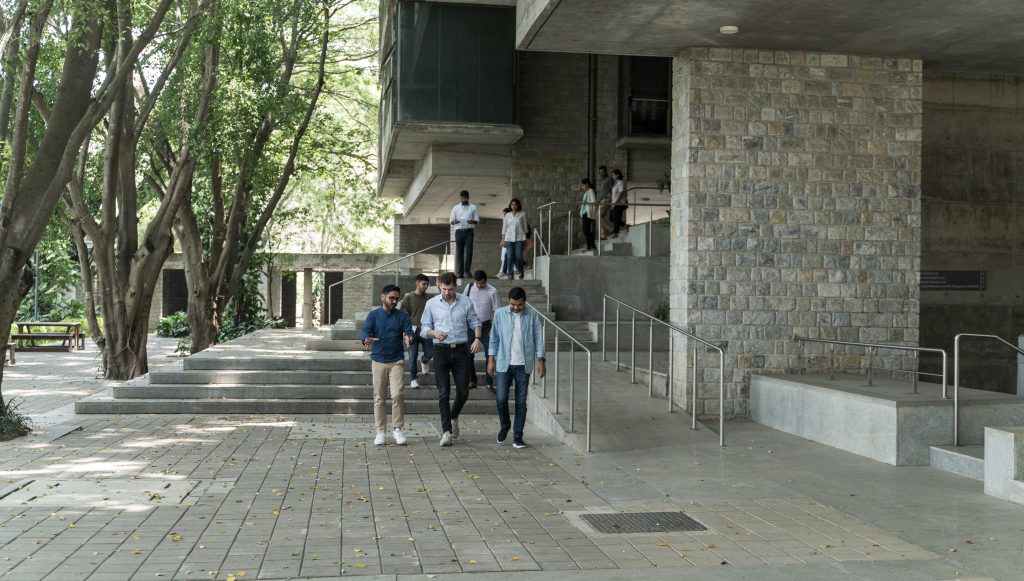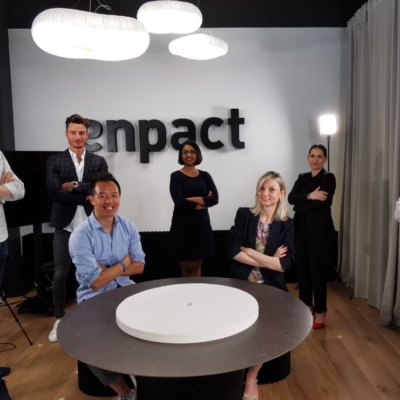
Towards a Collaborative Future: Shaping International Development Cooperation for the 21st Century – Insights from the UMBI Project
My attempt to join the final innovation sprint in Bangalore of our “Urban Mobility Berlin India” (UMBI) project resulted in a 36-hour-long trip including five stops in different cities on two continents, due to flight cancellations, deviations, rebooking, delays, etc.
While you might – or not – consider this Kafkaesque, I could not help but look for a hidden camera, expecting Beckett or Ionesco to direct a movie with me as the protagonist. While we should leave the absurd theater in the depths of Europe’s 20th century, this experience was a great reminder that we take mobility for granted – way too often. And, actually, this should not come as a surprise. Getting from A to B is an essential need in human life. Instead of denying people this fundamental right or overlooking the many that are affected by , we must strive to develop solutions for the pressing issues related to mobility – its environmental impact, safety, autonomy, etc.
Mobility, next to green energy, education, and economic inclusion of underserved groups – the list is much longer – is another topic, where development cooperation must answer urgent questions. And, the Urban Mobility in India project is an excellent example of both best practices – and required improvements. Personally, my sojourn in Karnataka and Telangana was a wake-up call. The busy street life with its young population is a painful reminder that Europe is an aging continent. I doubt many of us have fully grasped what this means for the 21st century. While Germany used to – and continues to be – renowned for its engineering, innovation, and manufacturing skills, this advantage and the gap have closed significantly. In the not-so-near future, we need to ensure that we have something to offer to the global majority and not expect them to come to us and ask for something (we may not – or no longer) have.
The UMBI program was designed so that as a first step, public and private sector actors in India, specifically in Karnataka, defined challenges in transport they currently are facing and/or working on. These challenges were turned into an open call for startup applications, whose ideas, services, and products would tackle these challenges. While the call was open for businesses at different developmental stages from Berlin and India, most of the ideas and applicants were Indian. Once more, this should not come as a surprise. Local challenges are best tackled by local expertise. A resulting question of this observation is: What kind of international development cooperation is required in the 21st century? The UMBI project provided excellent evidence that all required ingredients for an Indian solution, to the Indian mobility challenges, are available. This means top-level business schools for talents, a vast, motivated, and talented youth with innovative ideas, the willingness to support, and readiness to invest from both the public and the private sector.

The innovation sprint at the Indian Institute for Management in Bangalore was packed with expert workshops, user/customer interviews, pitch training, theoretical input from the faculty, encouragement from the challenge owners, meetups, networking, meeting with potential partners and investors – and so much more. It was inspiring, refreshing, and intriguing to witness people investing their time, money, energy, creativity, and efforts in finding solutions to the urgent challenges related to mobility. This approach is by far more promising (and practical) than people gluing themselves to Berlin’s circular freeway.
There are many ways how cooperation between countries and continents could look like. For all that, we need to distinguish between business and innovation exchange and international development cooperation.
For the former, the UMBI project is a great example. Here, its complex multi-stakeholder setup involving public federal governments in India and Germany, private sector actors in India and Germany, the GIZ offices in India and Germany, and last but not least an implementing agent is very promising. Even more, if a direct outcome is that the government of Karnataka is considering matching investments coming from abroad, as well as provide the challenges together with the opportunity to test the business cases in real-life applications with the public sector. This is particularly true for the mobility sector, where any intervention automatically involves that you have to deal with the government.

“Putting together the brains went quite well; we are very happy with the outcome. Especially since the Living Lab is now in contact with some of the startups, to apply their solutions as they had the opportunity to interact with their users, via the support of the local government” Manjunath Sekhar, Head of Sustainable Urban Mobility and Green Urban Mobility Innovation Living Lab, GIZ India.
For the latter, we should focus on underserved groups in regions without abundant access to opportunities or resources. Additionally, I suggest reducing the complexity of stakeholder structures for the sake of increasing direct financial support for the program participants. The provision of the tried and tested founder scholarships is something that I personally want to advocate for. Last, I want to congratulate and thank the bold and bright participants, especially the winners of the best idea, pitch, and scalable solution. After all, the best reward for us at enpact and one of the way we measure the impact of the work we do is seeing the growth and milestones that the participants of the programs have been able to accomplish through our work together.
—
Urban Mobility Berlin India (UMBI) project connects German and Indian actors in climate-friendly urban mobility space, to jointly develop solutions for identified challenges and to set impulses for improved mobility in India.
The UMBI project was established in 2022 by the Berlin Senate Department for Economics, Energy and Public Enterprises in cooperation with the Deutsche Gesellschaft für Internationale Zusammenarbeit (GIZ) GmbH, supported by the Federal Ministry for Economic Cooperation and Development (BMZ) through the Bund-Länder-Programm (BLP), and is implemented by enpact e.V. as an integral part of the startup platform AsiaBerlin.
It is cooperating in India with the bilateral program “Promoting India’s transformation to sustainable and climate-friendly e-Mobility”, commissioned by BMZ and implemented by GIZ and the develoPPP programme ‘Green Urban Mobility Innovation Living Lab’ with the partner Bosch Limited in Bangalore, India. ‘Green Urban Mobility Innovation Living Lab’ is a joint venture of Bosch Limited and GIZ India, the Living Lab aims to develop sustainable, inclusive and smart mobility solutions through an industry-led multi-stakeholder platform for innovation, collaboration and prototyping. The project is part of the Green Urban Mobility Partnership (GUMP) between India and Germany.




